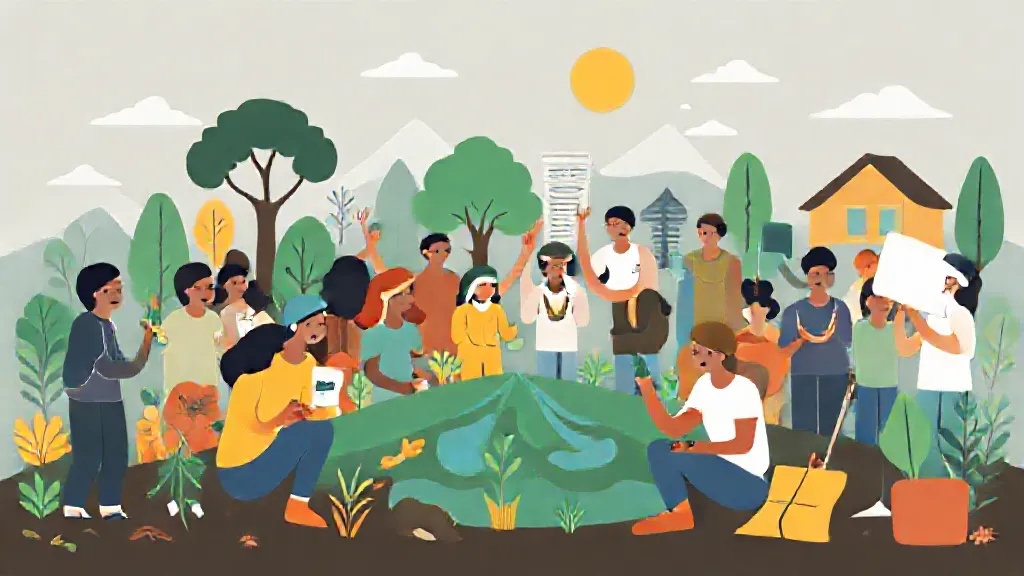The urgency of climate change has never been more pronounced, with rising temperatures, extreme weather events, and biodiversity loss posing significant threats to our planet. In this context, collective action emerges as a powerful catalyst for climate solutions. Collective action refers to the efforts undertaken by groups of individuals or communities to achieve a common goal, particularly in addressing environmental challenges.
This article delves into the various dimensions of collective action and its pivotal role in driving effective climate solutions.
The Power of Grassroots Movements
Grassroots movements have been at the forefront of climate action, demonstrating how local communities can mobilize to effect change. One notable example is the Fridays for Future movement, initiated by Greta Thunberg in 2018.
This global youth-led initiative has inspired millions to advocate for urgent climate policies, showcasing the impact of collective voices. Grassroots movements often harness social media to amplify their message, creating a sense of urgency and solidarity among participants. The power of these movements lies in their ability to influence public opinion and pressure policymakers to take meaningful action.
Collaborative Initiatives and Partnerships
Collaboration is essential in the fight against climate change. Various organizations, governments, and businesses are increasingly recognizing the need for partnerships to address this global crisis. Initiatives like the Carbon Disclosure Project (CDP) encourage companies to disclose their environmental impact and work together to reduce carbon emissions.
By fostering collaboration, stakeholders can share resources, expertise, and best practices, leading to more effective climate solutions. These partnerships can also facilitate innovation, driving the development of new technologies and strategies for reducing greenhouse gas emissions.
Community-Based Adaptation Strategies
Collective action is not only about mitigation but also adaptation to the impacts of climate change.
Community-based adaptation strategies empower local populations to develop resilience against climate-related risks. For instance, in Bangladesh, communities have implemented early warning systems for floods, enabling them to respond swiftly and reduce vulnerability. Such initiatives highlight the importance of local knowledge and participation in crafting effective adaptation measures.
By engaging communities in the decision-making process, these strategies ensure that solutions are tailored to specific needs and contexts.
The Role of Indigenous Knowledge
Indigenous communities possess invaluable knowledge about sustainable practices and ecological stewardship. Their traditional ecological knowledge (TEK) can significantly contribute to climate solutions.
For example, Indigenous fire management practices in Australia have been recognized for their effectiveness in reducing wildfire risks and promoting biodiversity. By integrating TEK with modern scientific approaches, collective action can lead to more holistic and sustainable climate solutions. Recognizing and respecting Indigenous rights in climate action is crucial for fostering equitable and effective strategies.
Policy Advocacy and Collective Action
Collective action extends to policy advocacy, where groups unite to influence legislation and government action on climate change. The Paris Agreement, adopted in 2015, is a testament to the power of collective commitment on a global scale. Civil society organizations, youth activists, and environmental groups played a crucial role in shaping this landmark agreement.
By mobilizing public support and holding governments accountable, collective action can drive systemic change and ensure that climate commitments are met.
Challenges to Collective Action
While collective action holds great promise, it is not without challenges. Disparities in resources, knowledge, and power can hinder effective collaboration.
Moreover, differing priorities among stakeholders can lead to conflicts and inefficiencies. To overcome these challenges, it is essential to foster inclusive dialogue and build trust among participants. Establishing clear goals and shared values can also enhance the effectiveness of collective efforts.
Recognizing and addressing these barriers is vital for harnessing the full potential of collective action in climate solutions.
The Future of Collective Action in Climate Solutions
Looking ahead, the role of collective action in climate solutions is likely to expand. As the impacts of climate change become increasingly evident, communities will continue to seek collaborative approaches to address these challenges.
Technological advancements, such as blockchain and artificial intelligence, can facilitate collective action by improving transparency and coordination among stakeholders. Additionally, the growing emphasis on corporate social responsibility and sustainability will encourage businesses to engage in collective efforts, further amplifying the impact of community-driven initiatives.
Conclusion: A Call to Action
In conclusion, collective action is a powerful driver of climate solutions, offering a pathway for communities to unite and tackle environmental challenges.
By embracing grassroots movements, fostering collaboration, and integrating diverse knowledge systems, we can create effective and equitable strategies for addressing climate change. As individuals, we can contribute to collective action by supporting local initiatives, advocating for policy changes, and raising awareness about the urgency of climate action. Together, we can build a sustainable future for our planet through the power of collective action.
